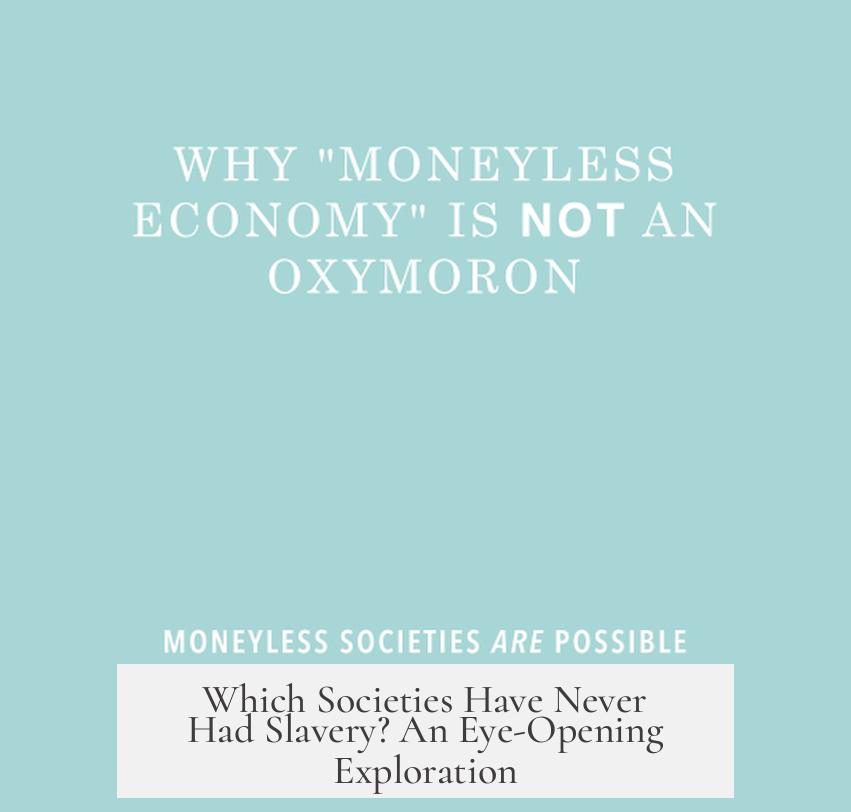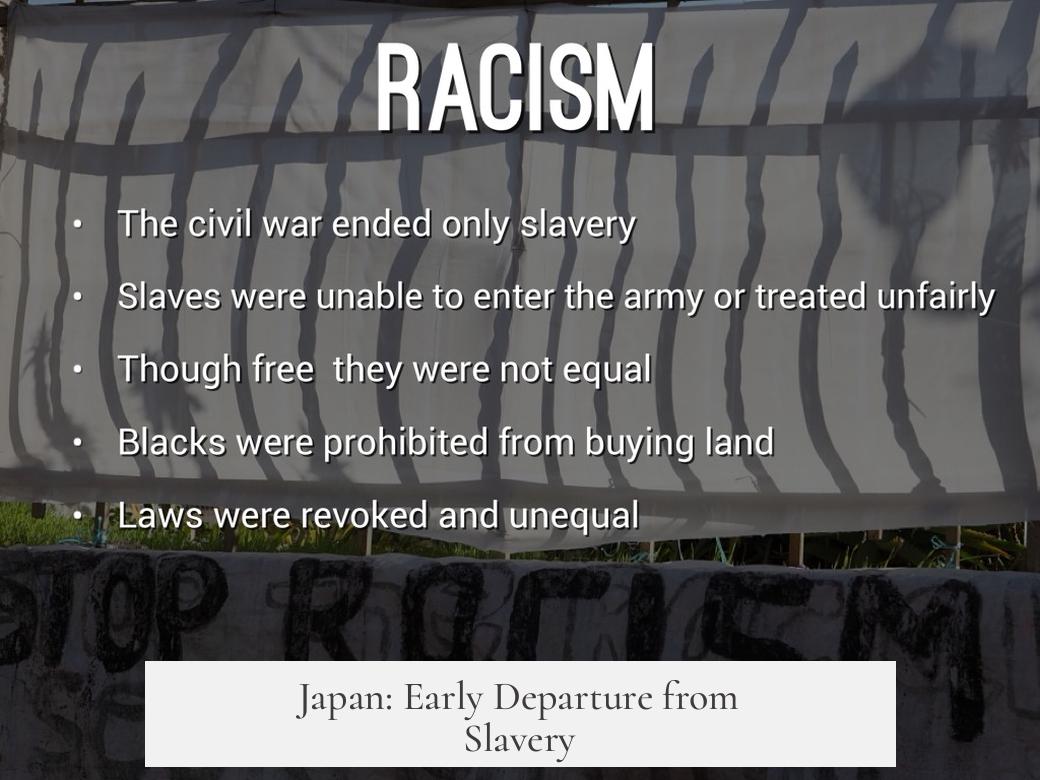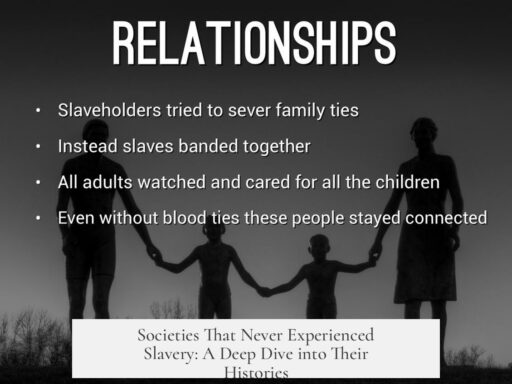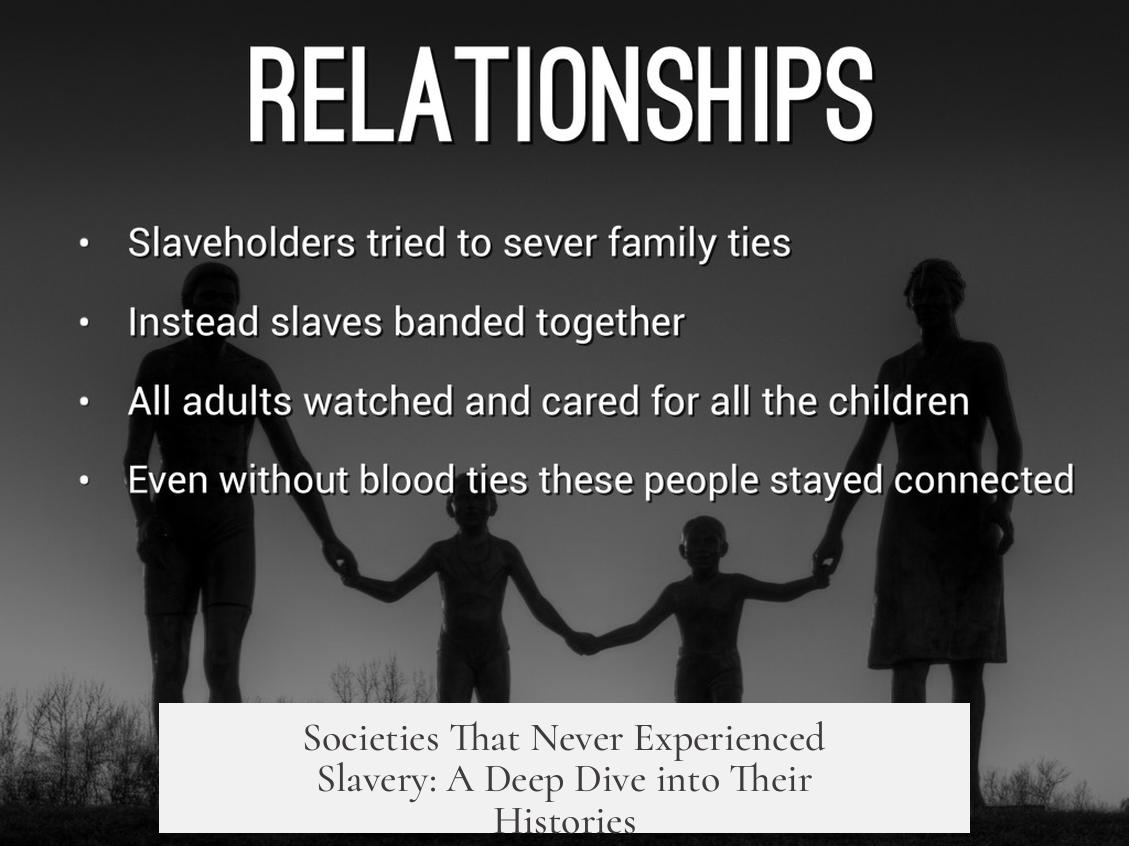Societies that have never had slavery are very rare, as slavery has been a widespread institution throughout history. However, certain societies either saw slavery disappear early or abolished it long ago.
Christian Western Europe, after the fall of the Roman Empire, experienced a significant decline in slavery. During Medieval times, slavery largely disappeared and was replaced by serfdom—a system where peasants were tied to the land but were not slaves in the classical sense. For example, serfdom ended relatively early in places like England, Iceland (by 1117), Norway (before 1274), and France (by 1315). Over time, these regions moved away from slavery and bonded labor.
Britain played a major role in the global abolition of slavery in the last two centuries. The British government outlawed the slave trade in 1807 and abolished slavery within its empire in 1833. Unique to Britain’s approach was its international enforcement: the Royal Navy patrolled the African coast to intercept slave ships from all nations, freeing over 150,000 people by 1865. Freed individuals were often resettled in Sierra Leone or the British West Indies.
Japan is another society with an early end to slavery. Historical records show that slavery had mostly disappeared in Japan by 1200 CE. This early abolition makes Japan one of the earliest societies to move away from slavery on a broad scale.
In contrast, slavery was prevalent in many other regions through much of history, including sub-Saharan Africa, most Arab societies, the Ottoman Empire, China, and India. China abolished slavery several times but struggled with repeated legalization until the early 20th century. India had entrenched slavery under various rulers until the British abolished it in 1843, although it lingered in certain areas afterward.
Many societies have practiced slavery at some point, and identifying societies with no history of slavery is difficult due to limited historical records and the widespread nature of the practice.
- Christian Western Europe saw slavery disappear after Rome, replaced largely by serfdom.
- Britain abolished slavery in the 19th century and enforced abolition internationally.
- Japan ended slavery mostly by 1200 CE, an early example of abolition.
- Most other regions, including Africa, Asia, and the Middle East, historically practiced slavery.
Which Societies Have Never Had Slavery? An Eye-Opening Exploration

If you’re wondering, are there societies on Earth that have never ever practiced slavery? – the short answer is: It’s complicated, but yes, a few societies stand out as having no or minimal slavery, especially post-Rome Europe and Japan.
Slavery, unfortunately, has left its mark almost everywhere in recorded history. Yet, not all paths converged on this dark institution. Let’s dive deeper into those rare societies where slavery vanished or never gained a foothold, and the fascinating stories behind them.
The Curious Case of Christian Western Europe After Rome
Christian Western Europe, after the collapse of the Roman Empire (around the 5th century), marks one of the earliest major shifts toward a slavery-free or at least slavery-diminished society.
But hold on! Slavery didn’t simply vanish overnight like forgotten VHS tapes. Instead, the economic system morphed. Here came the serfs: a peculiar class. Serfs weren’t slaves, yet not fully free either. They were tied to the land, required to labor for their lords but couldn’t be bought and sold freely. It’s like a middle ground between freedom and outright bondage.
This serfdom system gradually disappeared, too – quite early in some places. England phased it out starting around the late Middle Ages, Iceland as early as 1117, Norway before 1274, and France by 1315. It’s a rare medieval twist: a step away from slavery leading eventually to peasant freedom.
What caused this disappearance? Several factors, including economic shifts, population changes, and pressures like peasant revolts. The Black Death’s demographic impact also gave surviving workers more bargaining power, slowly eroding servile systems.
Britain: The 19th Century Abolitionist Powerhouse
Fast-forward to the 19th century, and Britain leads a wave to outlaw slavery—not just at home, but globally. The United Kingdom abolished the slave trade in 1807 and slavery itself throughout the British Empire by 1833.
But Britain didn’t stop there. They deployed a naval squadron off Africa’s coast, intercepting slave ships of various nations. By 1865, this squadron freed over 150,000 enslaved people. Rescued slaves were settled in places like Sierra Leone or the British West Indies, new chapters of freedom beginning after harrowing journeys.
This global abolition effort wasn’t just moral; it was also diplomatic and militarily complex. Britain’s naval policing of the slave trade reshaped international relations and helped dismantle one of history’s most heinous trades.
Japan: Early Departure from Slavery

Now, jetting over to East Asia: Japan is another intriguing example. Slavery there mostly faded away by 1200 CE, centuries before the global abolition movements.
Japan’s social structure and cultural developments discouraged long-term existence of slavery. Although some forms of servitude existed, the outright chattel slavery known elsewhere didn’t root deeply.
This early disappearance challenges the assumption that slavery was an inevitability everywhere. Cultural contexts and economic models matter! Japan’s early abolition speaks volumes about societal choices.
The Broader Picture: Widespread Slavery and Complex Histories
Slavery has been deeply embedded across many regions worldwide. From sub-Saharan Africa to Arab societies, Morocco, the Ottoman Empire (where slavery lasted into the early 1900s), China (with multiple cycles of abolition and re-legalization until 1910), and India (more prevalent under Muslim rule and only abolished in 1843 by the British)—slavery was common.
Yet, each area had distinct experiences. Some regions saw gradual or partial abolition. For example, India’s slow fade from slavery wasn’t a flip-a-switch event. Cultural, economic, and political factors influenced timelines and outcomes.
Is there a society that truly never had slavery? It’s possible, but not firmly identified. Many ancient and small societies remain poorly documented. Historians face challenges verifying slavery’s absence versus incomplete records. Most studies agree slavery’s presence was near-universal in the ancient and medieval world.
Why Does This Matter? The Lessons of Freedom’s Edges
Exploring which societies escaped slavery or abolished it early reveals that slavery isn’t a fixed destiny but a social construct. It depended on economics, culture, law, and resistance.
Northwestern Europe and Japan’s early abandonment highlight alternatives to forced labor systems. They show that socio-political change, legal frameworks, and sometimes acts of courage can dismantle oppressive institutions.
Plus, Britain’s 19th-century abolition showcases that global change is possible when nations choose to enforce human rights—even with flawed motives.
Practical Takeaways and Reflections
- Recognize complexity and nuance. Not all servitude is slavery; understanding serfdom versus slavery helps grasp social hierarchies clearly.
- Learn from historical paths. Consider how economic shifts can reduce reliance on forced labor today (e.g., automation, fair labor laws).
- Value vigilance. The abolition of slavery didn’t mean the end of exploitation. Modern forms, like human trafficking, persist; societies must remain alert.
- Celebrate early abolitionists. How societies like Japan moved away from slavery early inspires modern efforts for justice.
If we peer into history, we find that while slavery was widespread, some societies charted different paths early on. That’s a clear beacon that such entrenched systems can be uprooted. The question remains: how can we apply those lessons today to eradicate all forms of modern servitude?
Understanding these societies offers more than historical trivia. It shows a human capacity for progress and a framework for building freer societies worldwide. And maybe—just maybe—it proves that even the most ingrained societal norms can change, sometimes sooner than we think.




